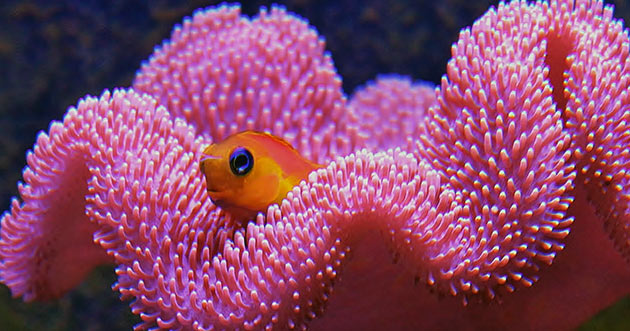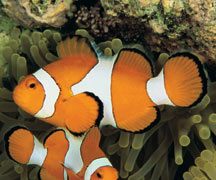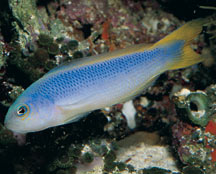
"Ethical aquarium ownership" is a phrase that means a lot of different things to many different people. In this article, we will be focusing on the ethical issues that involve aquarium ownership of both marine and freshwater species, particularly environmental and welfare concerns.
When we talk about aquarium ownership and welfare of the tank inhabitants we are not just talking about fish, but equally as important are the corals, invertebrates, plants, and all living species found in aquarium systems. While volumes can be written about ethical ownership, this article will try to cover some of the more basic issues, and should be just the beginning for people that are serious about aquariums and their inhabitants.
The issues
It does not take aquarium owners very long to come to some conclusions about aquarium ownership. Most aquarists soon find the fascination with their aquarium grows daily and that there is unlimited potential for increasing their knowledge and understanding of the underwater world.
However, many hobbyists also discover that there are some thorny ethical issues involved in both freshwater and marine aquarium ownership.
So what is the solution? In most cases, good ethical decisions cannot be made without a complete gathering of facts from all sides. While it is easy to sit back and have armchair opinions about this topic, until we research all of the facts, our opinions will be ungrounded, and carry little weight. At the same time, ethical decisions are a personal choice and vary from person to person; ethical decisions are always made from within. The Internet has made a wealth of information available and anyone that is interested in learning more about the issue of ethical aquarium ownership can find thousands of pages of articles and information there. So gather the facts, and then after you are armed with knowledge, formulate your opinions, and go out and follow up with your purchase decisions.
 Captive Bred vs wild-caught species
Captive Bred vs wild-caught species
One of the ethical dilemmas most aquarists have faced is the issue of
captive-bred vs wild-caught species. On the surface, this topic may appear very simple and many people respond by saying captive-bred species are better, but this is not always the case nor is it always an option. While captive-bred species are often preferred and make up the bulk of tropical freshwater fish, less than ten percent of marine species are available from captive-bred sources. While some aquarists choose to only purchase captive-bred species of fish and aquacultured corals, most aquarists are going to want to have some species that are wild-caught. Through informed and conscientious purchasing decisions, a buyer can impact the industry and move it toward reduced mortality, improved harvesting methods and regulation, and the preservation of fragile ecosystems. When choosing a source for wild-caught species, these are some questions that the aquarist needs to consider:
- Is the importer experienced and using state-of-the-art handling and storage facilities?
- Is the importer working with organizations to help ensure the humane capture of aquatic life?
- Are these species being monitored on importation by the Fish and Wildlife Service and have the proper CITES permits that ensure they are being harvested properly and legally?
- Are these species guaranteed with live delivery and are they guaranteed to survive after being introduced into their tank?
- Are the supplier and importer concerned with and taking measures to reduce fish mortality in every area of the industry?
- Is the seller willing to provide information about the species and insist on a strict handling and acclimatization protocol?
All of these questions need to be answered to the customer's satisfaction before fish, coral, and invertebrate species are purchased. The most experienced, reliable suppliers know, that to be successful, they need to have the highest standards and concern for the fish and their environment.
What can you do at home?
All of the best research and concern will not do you any good if you take this carefully handled and healthy fish, invertebrate, or coral and put it in your aquarium only to have it die several weeks later. Unfortunately, mortality in the home aquarium is still one of the biggest problems the industry faces. Making sure your aquarium has all of the appropriate water parameters and environmental requirements the particular species needs is one way to reduce mortality. Also, make sure you have the expertise to properly house the species. There are some species that simply do not acclimatize well to life in captivity. As aquarists, we need to recognize these species and not create a market for them. At the same time, the industry needs to examine whether it should carry some of these fragile species even if they are only recommended for sale to experienced or expert aquarists.
 Public education and awareness
Public education and awareness
In addition to our personal choices, we can make an impact through increasing public awareness. As individual aquarists, we should promote the educational value of our home aquariums and demonstrate the value of good stewardship by promoting organizations that protect our world's fresh and saltwater ecosystems. People that can experience the beauty of a reef ecosystem and understand the plight of the world's reefs are much more likely to support their protection. Aquarists are often extremely interested in protecting our natural resources. We have never, yet, met a serious hobbyist who was not concerned with the preservation of the wild ecosystems and the animal and plant species they love. Our challenge is to encourage all aquarists to promote the best harvesting, handling, and management of all species through their own purchasing choices and affiliations, as well as educating the general public. Aquarium owners can be one of the best friends to all aquatic species and aquatic environments worldwide.
Summary
If we work to educate ourselves and the public, promote the highest standards for fish harvesting and management, and promote good stewardship practices and organizations, we can make a lasting difference for all species.
|